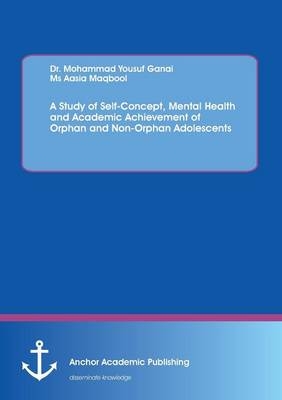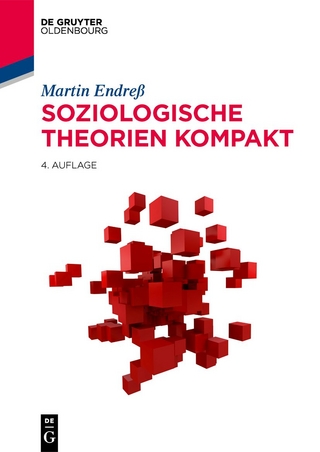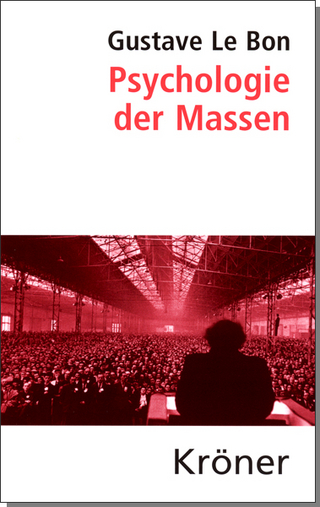
A Study of Self-Concept, Mental Health and Academic Achievement of Orphan and Non-Orphan Adolescents
Anchor Academic Publishing (Verlag)
978-3-95489-496-3 (ISBN)
Accidents, Natural death and conflicts are creating generations of orphaned children. In addition the loss of a parent, orphaned children may face many hardships during their adolescence including decline in health, nutrition and psychological wellbeing. The number of children estimated to be orphaned due to all causes is estimated to be between 143 million and 210 million (UNICEF, 2012). Children and adolescents in particular are at increased risk for unresolved or complicated bereavement because of their development, vulnerability and emotional dependency.
The purpose of the present investigation was to examine the differences in self-concept, mental health and academic achievement of orphan and non-orphan adolescents. The study adds to the existing literature and will become a guideline for researchers, educators, administrators and counselors to guide the students in a proper way and to frame the suitable educational environment where the adolescents can be accommodated and their self-concept, mental health and academic achievement may improve.
Ms Aasia Maqbool is presently an Assistant Professor in the Faculty of Education, University of Kashmir, Jammu and Kashmir, India. She received her education from University of Kashmir and pursued her Pre-doctorate Degree from the same University. She qualified NET and SET in the discipline of Education. Alongside teaching, she is a resource person of the Directorate of Distance Education, University of Kashmir and IGNOU-RC Srinagar. She has a large number of publications to her credit. The author has delivered numerous of lectures in different institutions at a higher level. The author has attended several workshops, seminars and conferences in her field.
Dr. Mohammad Yousuf Ganai was born in Onagam village in the District Bandipora of Jammu and Kashmir in the state of India. He received his early education in a nearby primary school and pursued his Master of Education degree from University of Kashmir. From the same university he also got master's degree in History, besides an M.Phill and Ph.D in Education. He started his carrier as Assistant Professor in Department of Education, University of Kashmir. Presently he is working Associate Professor in the same university. Dr.Mohammad Yousuf has guided number of M.Phill students and Ph.D students to their graduation. He is the author of 5 books and has 60 research papers to his credit, which were published both at national and international journals. Alongside this, he is a resource person for numerous educational institutions. He has delivered several extension lectures in various Teacher Training colleges. Dr. Mohammad Yousuf has attended multiple workshops, seminars and conferences in his field of study.
'Text sample:
Chapter 3: Methodology and Procedure:
Research is the endless quest for knowledge or unending search for truth. It is rather speech that provides knowledge for solution of problems in the field of education. It is orientated towards the discovery of relationship that exists among different phenomena of the world. So, it is the need of the day to carry research in every field and more so in the field of education. Progress in any field is directly linked with research in it. Every piece of research must be planned and designed carefully so that the researcher proceeds ahead without getting confused at the subsequent steps of research. According to Kothari "Research Design stands for advance planning of the method of adopted for collecting the relevant planning of the method to be adopted for collecting the relevant data and the technique to be used in the analysis, keeping in view the objectives of the research to availability of staff, time and money".
The design of the research is the actual blue print of the procedure for the completion of various research steps and thus reaching valid conclusion regarding the relationship between the variables under study. The researcher must have a clear understanding of what is to be done, what data is needed, what data-collecting tools are to be employed and how the data is to be statistically analyzed and interpreted.
The common idea of methodology is the collection, the comparative study, and the critique of the individual methods that are used in a given discipline or fields of inquiry. It can be defined as: "A body of methods rules and postulates employed by a discipline" or a particular procedure or set of procedures.
Any piece of research is incomplete without a popular plan of action. A research is designed to enable the researcher to arrive at a valid, objective and accurate solution of the given problem as possible. Research design is, thus a detailed plan of how the goals of will be achieved.
Research design has been broadly classified under some well established patterns and is widely used in various disciplines. The descriptive, historical and experimented researches have been widely used by researchers in education. The investigator, after surveying relevant research studies and their design adopted descriptive research for the present study.
Research design has been defined by different social scientist in different terms. All these definition emphasize systematic methodology in collecting accurate information for interpretation. Research design is the plan, structure and strategy of investigation conceived so as to obtain answers to the research questions. The plan is an overall program of research. It includes the outline of what the investigator will do from writing the structure of research in more specific. It is the outline, the structure, the scheme, the paradigm (diagrams, graphs and verbal outline) of the operation of variables. Strategy is also more specific than plan. It includes the methods to be used to gather and analyze the data. In other words, strategy implies how the research objectives will be reached and how the problems encountered in the research will be tackled.
In words of Ackoff Russel (1961) research design is "planning various phases and procedures relating to the formulation of research efforts". He further explains it as, an arrangement of the essential conditions for collection and analysis of data in a form that aims at combining relevance to research purpose with economy in the procedure". Kerlinger (1973) has explained and analyzed the basic characteristic for the formulation and procedural techniques of research design. He has rightly said, "A research design sets up the frame work for, 'adequate' tests of the relations among variables. Designs tells us, in a sense, what observations to make, how to make them and how to analysis
| Erscheinungsdatum | 18.07.2016 |
|---|---|
| Sprache | englisch |
| Maße | 155 x 220 mm |
| Gewicht | 190 g |
| Themenwelt | Sozialwissenschaften ► Soziologie ► Allgemeine Soziologie |
| ISBN-10 | 3-95489-496-3 / 3954894963 |
| ISBN-13 | 978-3-95489-496-3 / 9783954894963 |
| Zustand | Neuware |
| Haben Sie eine Frage zum Produkt? |
aus dem Bereich


